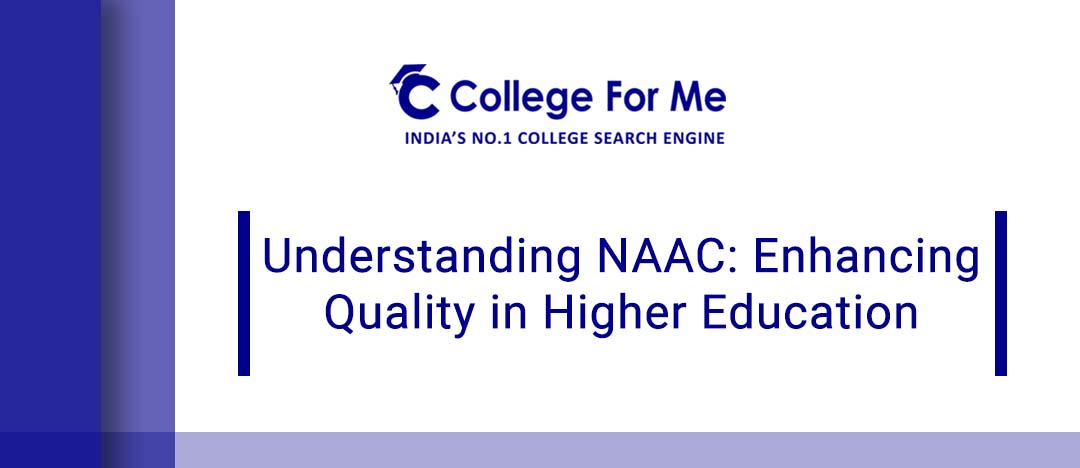Career Scopes Of A B.Tech. Student
There is a high demand for B.Tech. degree holders in the private sector, yet, there is also the opti...

In the pursuit of excellence in higher education, institutions strive to provide quality education and meet the evolving needs of students and society. The National Assessment and Accreditation Council (NAAC) in India plays a significant role in assessing and accrediting institutions to ensure their adherence to rigorous quality standards.
In this blog, we delve into the concept of NAAC, its purpose, and its impact on the educational landscape of India.
Defining NAAC:
The National Assessment and Accreditation Council (NAAC) is an autonomous body established by the University Grants Commission (UGC) in 1994. Its primary objective is to assess and accredit higher education institutions across India. NAAC evaluates various parameters, including infrastructure, teaching-learning processes, research output, governance, and student support services, to determine the overall quality and performance of an institution.
Accreditation Process:
The NAAC accreditation process is a comprehensive and rigorous assessment that involves self-evaluation by the institution followed by a peer review process. Institutions voluntarily participate in the accreditation process to gain recognition and improve their quality standards. The evaluation is based on a set of predefined criteria and guidelines provided by NAAC, known as the "Key Indicators and Standards."
Key Focus Areas:
NAAC's assessment focuses on several key areas that contribute to the overall quality of an institution. These include:
Benefits of NAAC Accreditation:
NAAC accreditation provides several benefits to institutions, faculty, and students:
Conclusion:
The National Assessment and Accreditation Council (NAAC) plays a crucial role in ensuring and enhancing the quality of higher education in India. Through its rigorous assessment and accreditation process, NAAC encourages institutions to meet the highest standards of excellence in various aspects of education. NAAC accreditation brings numerous benefits, including quality enhancement, national and international recognition, funding opportunities, and improved student employability. By driving continuous improvement, NAAC contributes to the growth and development of higher education institutions, ultimately benefiting students, faculty, and the overall educational landscape of the country.

There is a high demand for B.Tech. degree holders in the private sector, yet, there is also the opti...

If you are looking for a bright and prospective career, then getting a B.Tech. in CSE must be under ...
Comments (0)